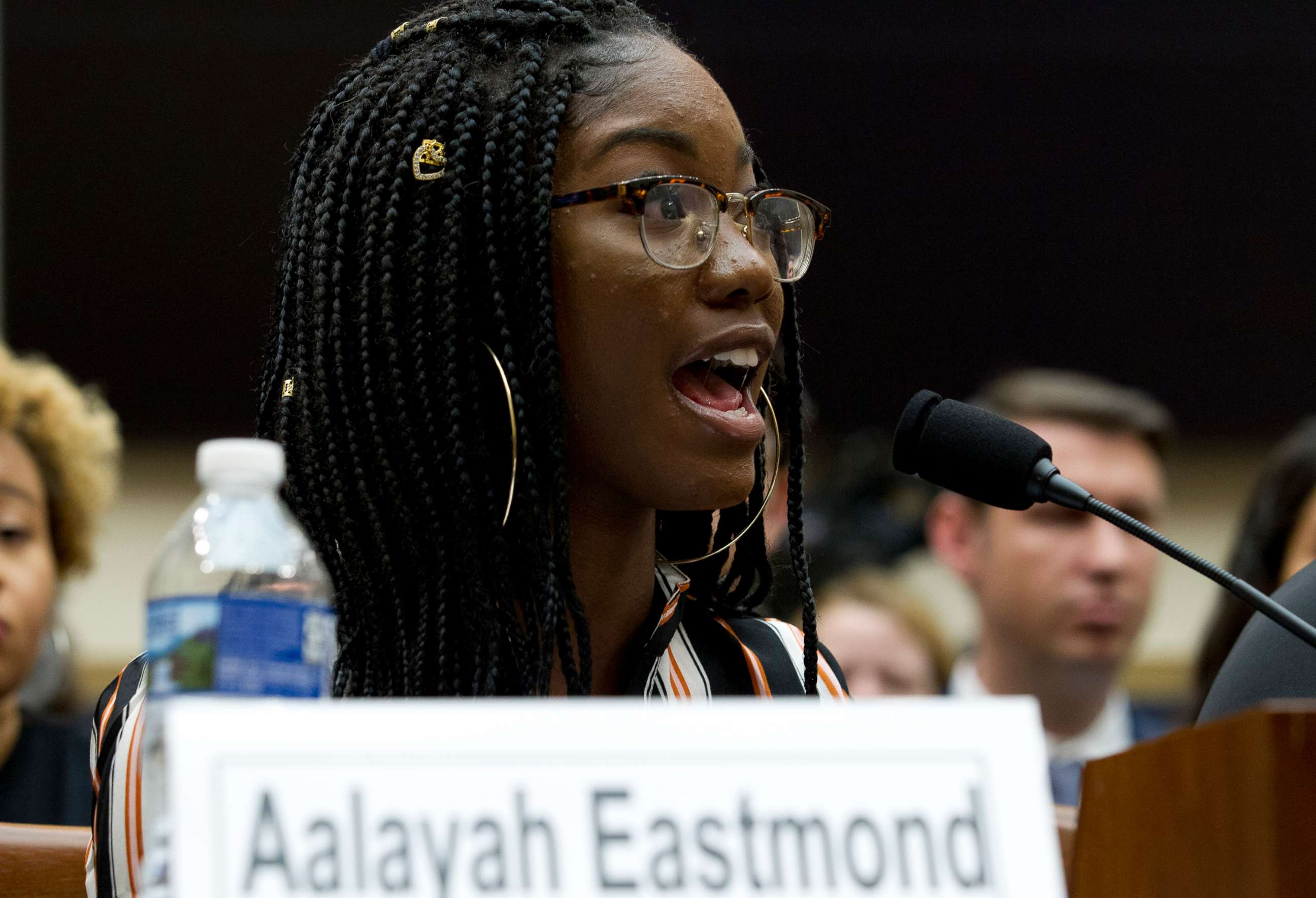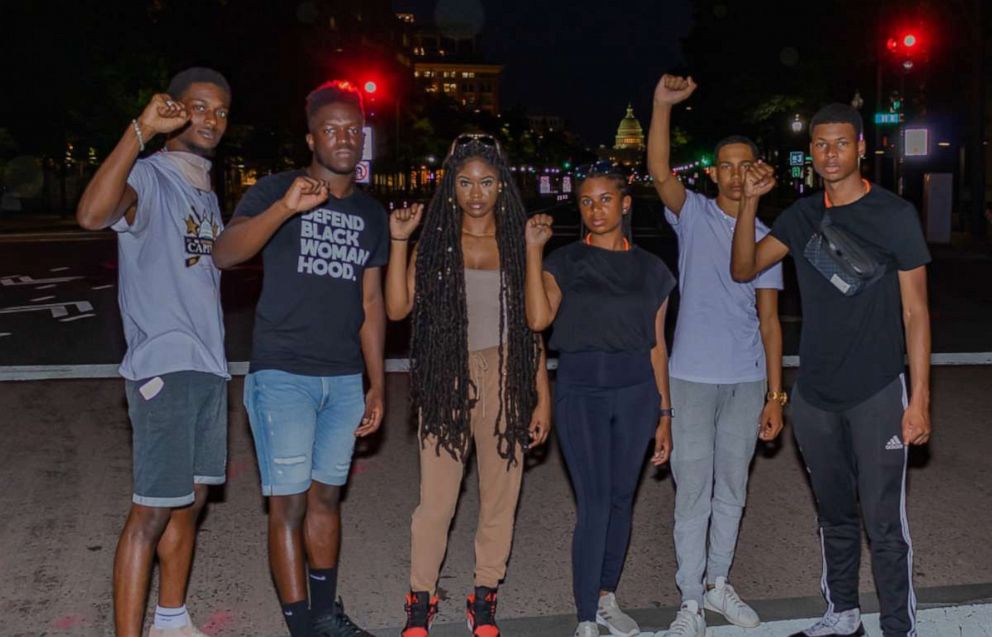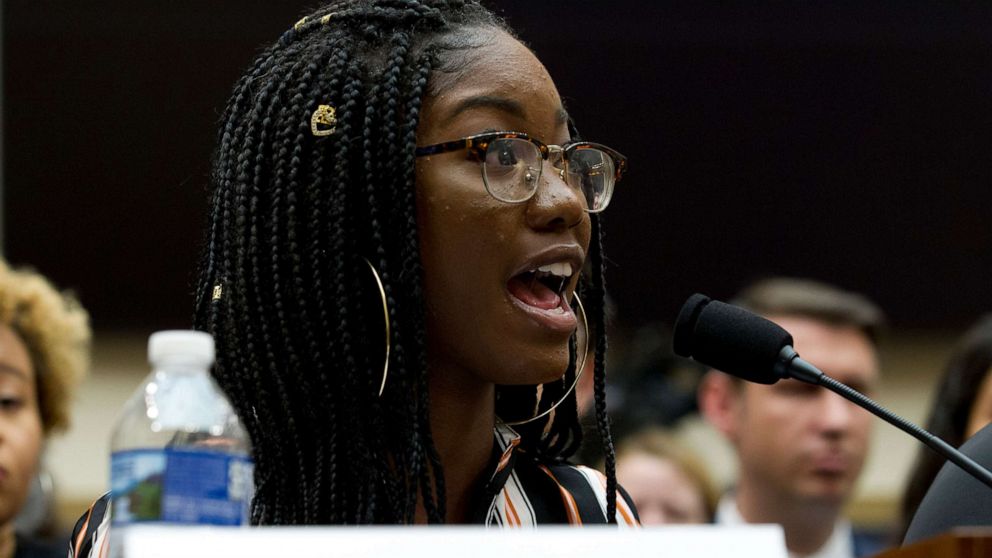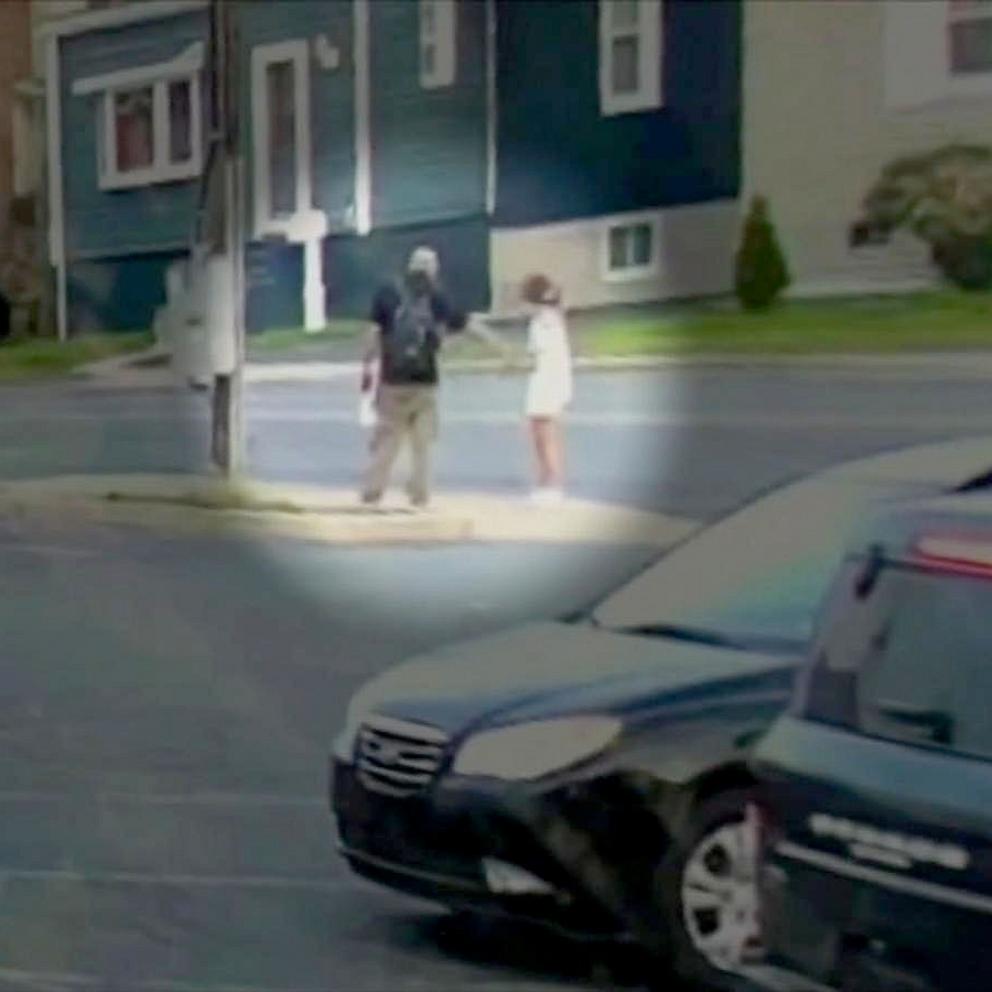Parkland survivor turned racial equality activist is fighting on two fronts
Though permanently scarred from surviving a mass shooting at Marjory Stoneman Douglas high school in 2018, Aalayah Eastmond, 19, said she refuses to let her traumatic experiences obstruct her road to activism against gun violence and racial injustice .
Eastmond’s life was upended on February 14, 2018, when a gunman opened fire and killed 17 people at her high school in Parkland, Florida. After surviving the shooting by hiding behind her deceased classmate's body, she said she soon realized that she had a duty to fulfill.
She used her story of trauma as a gateway to activism.
Before the tragedy, Eastmond said she was a shy and timid girl from Brooklyn, New York who just loved to play the violin. As one of the few black students attending Parkland’s majority white and affluent high school, she wasn't usually outspoken on issues or beliefs she was passionate about.

“I didn’t really like to talk to a lot of people because I just felt like nobody could relate to me at Douglas. It was just an uncomfortable space,” she told ABC News. “I always had to assimilate myself for the comfortability of those around me.”
After the shooting, Eastmond’s mother told her that her story could change people’s lives. She began to open up and join the front lines of activism.
As Eastmond quickly became involved with conversations across the country, she noticed a recurring theme in the dialogues about gun violence.
“I recognized the conversation was very one-sided when we discussed gun violence. It was on a national front but it was only addressing mass shootings,” Eastmond said.
Eastmond saw the devastating impact that gun violence has on black and brown communities long before the Parkland massacre. She said she lost her uncle to gun violence years prior in Brooklyn and she developed a much different perspective of this crisis starting at an early age.
Studies show that African Americans are disproportionately impacted by firearm homicide. According to Amnesty International, mass shootings account for less than one percent of firearm deaths in the United States. Notably, 80% of homicide gun deaths occur in urban areas, as reported by the Centers for Disease Control and Prevention.
Eastmond says her cognizance of this issue was a turning point for her in her advocacy efforts. She realized that not only did she have a duty to speak out against gun violence, but she was also called to be an advocate for the black community, making sure that they were included in the ongoing conversation.
“I tried to speak out as much as possible but also recognized that I am a young black woman and oftentimes our voices don’t get heard,” Eastmond said. “So not a lot of people care about what I have to say or take what I have to say seriously. I just found myself being unapologetically outspoken and just pushing aside caring about the comfortability of others.”
It was these moments that made Eastmond realize that she wanted to shift her focus in her activism.
Eastmond became an executive council member of Team Enough, a subsidiary organization of the Brady Campaign. The organization is comprised of youth leaders from marginalized communities who aim to educate young voices on how gun violence affects different communities to varying degrees.
Robert Disney, the national organizing director for the Brady Campaign, says that in recent years there has been a fundamental shift in the way that gun violence prevention organizations look at the crisis. Disney said Eastmond was instrumental in making sure that the nuances surrounding gun violence in black and brown communities remain a steadfast topic of conversation within the organization.
"We've always talked about how black and brown communities are disproportionately involved, but I think along with the rest of the country we've realized we have to do a lot better," Disney said. "We've realized that we have so much work to do and Aalayah has helped us with that."
Now at 19 years old, Eastmond has further cemented her goal of making black voices heard on this issue and many other fronts by co-founding Concerned Citizens of DC.
The team of organizers, each specializing in different areas of social justice, are taking to the streets of Washington, DC to better organize the recent protests against police brutality following the death of George Floyd.

"Whenever she speaks it's just like lightening strikes. She has this aura about her when she tells her story or just speaks about what's going on," said Seun Babalola, communications director of Concerned Citizens of DC. "You have no choice but to listen just because of how powerfully she gets her point across."
Eastmond says that despite her growing platform and popularity in the activism world "she is still a regular 19-year-old college student."
“I just see myself as a young black girl who’s concerned for not only my life but the life of those who look just like me,” she said.
Eastmond says she has noticed a difference in the support she receives from the Parkland community since becoming more vocal about racial inequality.
Reflecting on her work, Eastmond says that facing her traumas head on through advocacy can be healing at times but also triggering.
“I’m doing it and I have to do it. There’s so many other folks that deal with their own traumas that are still speaking out,” she said.
Eastmond says she hopes that speaking up as a minority in her community encourages other black women that they can do the same.
“I do this work specifically to show other black girls, young black girls, that they can also get their voices heard because black women are always ignored in certain spaces, if not all.” she said




